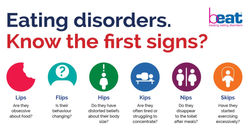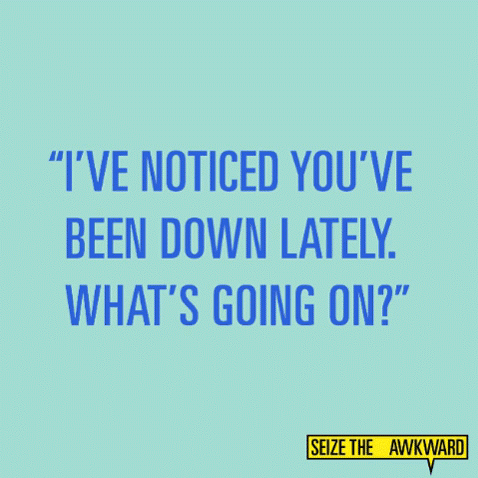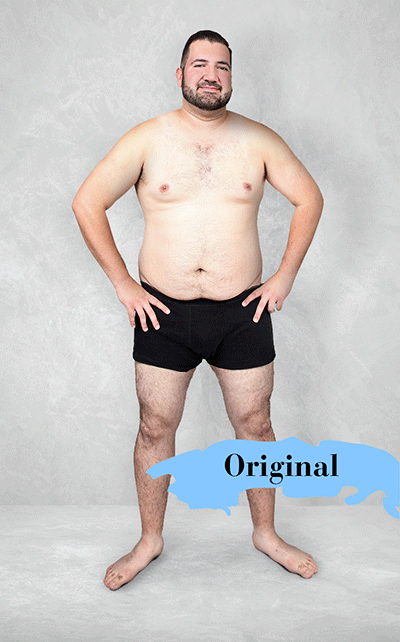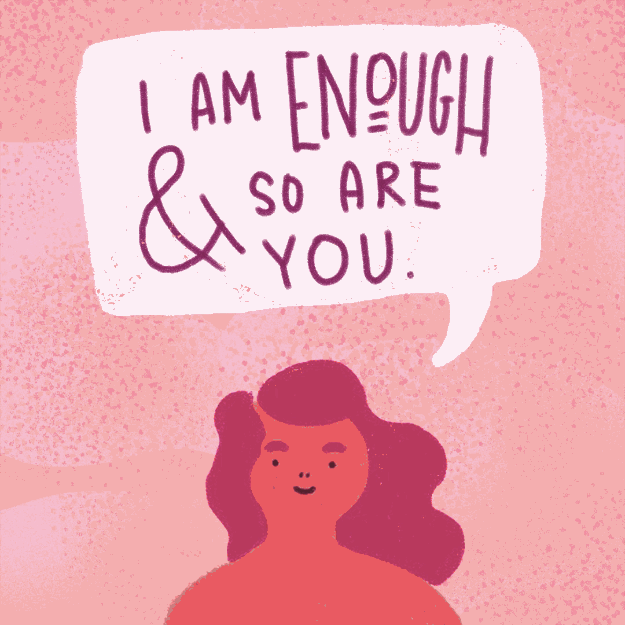EATING DISORDERS
WHAT IS IT?
An eating disorder is a mental health condition where you use the control of food to cope with feelings and other situations. Unhealthy eating behaviours may include eating too much or too little or worrying about your weight or body shape.
There's no one cause for eating disorders. Genes, environment, and stressful events all play a role. Some things can increase a person's chance of having an eating disorder, such as:
-
Poor body image
-
Too much focus on weight or looks
-
Dieting at a young age
-
Playing sports that focus on weight (gymnastics, ballet, ice skating, and wrestling)
-
Having a family member with an eating disorder
-
Mental health problems such as anxiety, depression, or OCD
The most common eating disorders are:
-
Anorexia Nervosa: trying to control your weight by not eating enough food, exercising too much, or doing both. People with anorexia are very strict about what and how much they will eat. They may think about food or calories almost all the time. To lose weight, some people with anorexia fast or exercise too much. Others may use laxatives, diuretics (water pills), or enemas.
-
Bulimia: losing control over how much you eat and then taking drastic action to not put on weight.People with bulimia eat much more (during a set period of time) than most people would. If a person regularly binges and purges, it may be a sign of bulimia. Unlike people with anorexia who are very low weight, people with bulimia may be thin, average weight, or overweight. People with bulimia often hide their eating and purging from others.
-
Binge Eating Disorder (BED): eating large portions of food until you feel uncomfortably full. Many people with binge eating disorder eat faster than normal. They may eat alone so others don't see how much they are eating. Unlike people with bulimia, those with binge eating disorder do not make themselves throw up, use laxatives, or exercise a lot to make up for binge eating. If a person binge eats at least once a week for 3 months, it may be a sign of binge eating disorder
-
ARFID: People with avoidant/restrictive food intake disorder are not interested in food or avoid foods, lose weight, or don't gain expected amount of weight, are not afraid of gaining weight, don't have a poor body image. People with ARFID don't eat because they are turned off by the smell, taste, texture, or color of food. They may be afraid that they will choke or vomit. They don't have anorexia, bulimia, or another medical problem that would explain their eating behaviors.
WHAT CAN HELP?
'Self-help' tips don't solve the issue. However, they can help you/others feel more in control when experiencing strong emotions.
If you find that 'self-help' isn't enough, consider reaching out to a counsellor or your GP for help managing overwhelming emotions.
01
Try not to spend too much time looking in mirrors or checking your body.
02
Try not to make comparisons or spend too much time looking at pictures of people in magazines or online. Remember that these pictures are often filtered or photoshopped.
03
Write down all the healthy physical changes that are happening in your body.
04
Take all of your clothes that don't fit to a charity shop, or sell them online.
05
Treat yourself to some new clothes in sizes you feel confident in.
06
Write down the reasons why you want to recover and look at them when things feel difficult.
07
Talk to other people – have a rant or share your worries with someone who understands.
08
Avoid weighing yourself if possible.
09
Acknowledge and accept that there might be times where you feel out of control.
10
Try and identify situations where you might be more at risk of your eating problems returning. Think about your warning signs and try to learn what you can do to prevent things from getting worse.
-
Changes in your mood e.g. withdrawn, anxious or depressed
-
Feeling cold, tired or dizzy
-
Pains, tingling or numbness in your arms and legs
-
Feeling your heart racing, fainting or feeling faint
-
Problems with digestion e.g. bloating, constipation, diarrhoea
-
Weight being very high/low for someone your age and height
-
Not getting your period or other delayed signs of puberty
WHAT ARE SOME OF THE COMMON SYMPTOMS?
-
Lot's of time spent worrying about weight and body shape
-
Avoiding socialising when you think food will be involved
-
Eating very little food
-
Making yourself sick or taking laxatives after you eat
-
Exercising too much
-
Having very strict habits or routines around food
WHAT ARE SOME OF THE TYPES OF TREATMENT?
You can recover from an eating disorder, but it may take time and recovery will be different for everyone. If you're referred to an eating disorder specialist or team of specialists, they'll be responsible for your care. They should talk to you about the support you might need, such as for other conditions you have, and include this in your treatment plan.
Treatment will depend on the type of eating disorder you have, but usually includes:
-
Inidividual talking therapy and sometimes group therapy
-
Regular health checks if your eating disorder is having an impact on your physical health.
-
Working through a guided self-help programme if you have bulimia or binge eating disorder.
EXTERNAL INFORMATION, SUPPORT AND ADVICE





















































 |  |  |  |  |
|---|---|---|---|---|
 |  |  |  |  |
 |  |  |  |  |
 |  |  |  |  |
 |  |  |  |  |
 |  |  |  |  |
 |  |  |  |  |
 |  |  |  |  |
 |  |  |  |  |
 |

